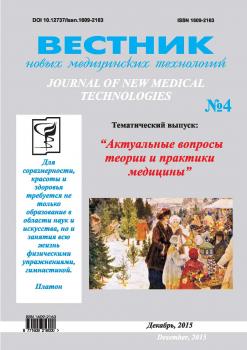Mechanisms of fatigue during exercise of circular orientation of various volume and intensity are analyzed from the position of functional systems theory. Peculiarities of fatigue anaerobic metabolism in high-speed sports, aerobic-anaerobic metabolism in sports disciplines connected with high speed endurance and aerobic metabolism in running the long and very long distances are considered. Sprint is dominated by anaerobic processes in working skeletal muscles and central mechanisms of fatigue. Central fatigue is ahead of peripheral fatigue of neuromuscular system. Anaerobic and aerobic oxidation processes occur when running athlete on medium distances. The effects of hypoxia, hypocapnia and accumulation of oxidation products from the working muscles begin to emerge. Disorders in respiratory and cardiovascular system appear. At long distances deep metabolic aerobic changes come, toxic products of metabolism accumulate, water-salt balance impairs, the cellular and molecular processes of excitation in the central and peripheral nervous system change. A combination of different disabilities leads to decrease the athlete neuromuscular system efficiency. System approach enables to reveal the fine line between achieving the body of a new quality level of adaptation to physical loads and breakdowns of compensatory mechanisms associated with the stress of functional systems for ensuring the work.
fatigue, anaerobic and aerobic metabolism, adaptation, functional systems theory.
1. Rozenblat V.V. Problema utomleniya. M.: Medgiz, 1961. 220 s.
2. Solodkov A.S., Sologub A.S. Fiziologiya cheloveka. Obshchaya. Sportivnaya. Vozrastnaya: uchebnik. M.: Terra-port, Olimpiya-ess, 2001. 520 s.
3. Dan´ko Yu.I. Ocherki fiziologii fizicheskikh uprazhneniy. M.: Meditsina, 1974. 255 s.
4. Kots Ya.M. Organizatsiya proizvol´nogo dvizheniya. Neyrofiziologicheskie mekhanizmy. M.: Nauka, 1975. S. 227-247.
5. Farfel´ V.S. Fiziologiya sporta. M.: Fizk. i sport., 1960. 384 s.
6. Volkov N.I., Nesen E.N., Osipenko E.N. Biokhimiya myshechnoy deyatel´nosti. Kiev: «Olimpiyskaya literatura», 2000. 503 s.
7. Yakovlev N.N. Biokhimicheskie osobennosti skeletnoy muskulatury. Ekologicheskaya fiziologiya zhivotnykh: rukovodstvo po fiziologii. L.: Nauka, 1981. S. 300-340.
8. Sergeev Yu.P., Yazvikov V.V., Ivanitskaya V.V., Martirosov E.G., Fudin N.A. Otdel funktsional´noy morfologii: Istoriya, osnovnye nauchnye napravleniya i razrabotki. Teoriya i praktika fizicheskoy kul´tury. 1983. № 3. S. 33-35.
9. Grigor´ev A.I., Khadartsev A.A., Fudin N.A., Vinogradova O.L. Elektrolazernaya miostimulyatsiya i lazeroforez biologicheski aktivnykh veshchestv v sporte: Metodicheskoe posobie. Tula: OOO RIF «INFRA», 2005. 16 s.
10. Anokhin P.K. Ocherki po fiziologii funktsional´nykh sistem. M.: Meditsina, 1975. 446 s.
11. Sudakov K.V. Funktsional´nye sistemy. M.: RAMN, 2011. 320 s.
12. Fudin N.A., Yu.E. Vagin Sistemnaya organizatsiya sportivnoy deyatel´nosti. Vestnik novykh med.tekhnologiy (elektronnyy zhurnal). 2013. № 1. URL: http://www.medtsu. tula.ru/VNMT/Bulletin/E2013-1/4452.pdf (data obrashcheniya: 30.07. 2013).
13. Fudin N.A., Khadartsev A.A., Orlov V.A. Mediko-biologicheskie tekhnologii v sporte. Monografiya/ Pod rukovodstvom akademika RAN i RMAN S.P. Smirnova. M.: Izdatel´stvo «Izvestiya», 2011. 460 s.
14. Fudin N.A., Vagin Yu.E., Klassina S.Ya. Metodologiya teorii funktsional´nykh sistem kak novyy podkhod k upravleniyu trenirovochnym protsessom. Vestnik novykh meditsinskikh tekhnologiy. 2012. T. 19. № 4. S. 118-122.
15. Bekhtereva T.L., Borisova O.N., Vigdorchik V.I., Khadartsev A.A., Fudin N.A., Koryagin A.A. Obosnovanie sposoba elektrolazernoy miostimulyatsii i lazeroforeza. Vestnik novykh meditsinskikh tekhnologiy. 2004. № 1. S. 66-68.





